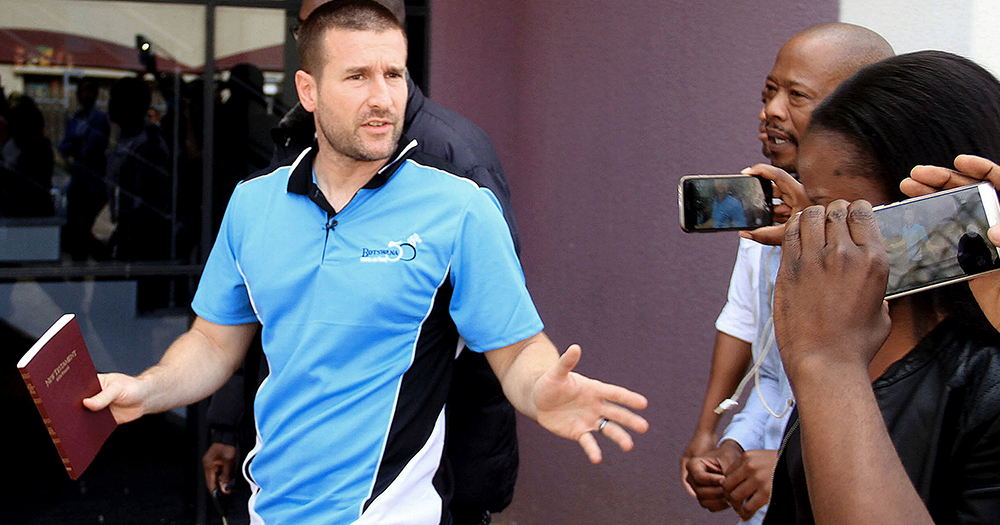When homophobic pastor Steven Anderson was due to visit Ireland in May to spread his toxic and dangerous views, Minister for Justice, Charlie Flanagan, used an exclusion order to ban him from entering the country.
Anderson had previously been banned from entering the Schengen area of 26 countries for his vile sermons including his views on how he proposed the extermination of LGBT+ people to “cure AIDS” and why the 49 people murdered in the Pulse nightclub massacre “deserved to die in the shooting”.
He also believes that homosexual people are “sodomites who recruit through rape” and “recruit through molestation” and can never be “saved”. During one of his sermons, he preached, “The biggest hypocrite in the world is the person who believes in the death penalty for murderers but not for homosexuals.” When questioned, he later doubled down on his preachings, saying, “I do hate homosexuals and if hating homosexuals makes our church a hate group, then that’s what we are.”
Anderson became the first person to be banned from Ireland in the 20 years since the exclusion power came into law. At the time, Liam Herrick, Executive Director of the Irish Council of Civil Liberties, called for Charlie Flanagan to explain his decision: “The law requires that a decision of this type must be necessary and must be in furtherance of public policy… We need to know why this was necessary or the only way of dealing with this particular difficulty, and we also need to know what is the public policy that requires this step. Because this decision affects fundamental rights in such an important way, we believe there’s a duty to give reasons in this case too.”
Herrick continued, “The use of exceptional legal powers needs to be very tightly defined and tightly explained and I think we need more information from the Minister on this.”
Charlie Flanagan said at the time that he signed the exclusion order to excluded Mr Anderson “with immediate effect in the interest of public policy”.
Now The Journal have reported that a copy of the exclusion order, which was released through the Freedom of Information Act, explains in greater detail the decision made by Flanagan, Director General of the Irish Naturalisation and Immigration Service (INIS) Michael Kirrane and another employee. It stated that Anderson’s “views and actions propounded and promoted are considered to be abusive and insulting and it is also considered that they are likely to stir up hatred.”
The report continued that his “incitement to hatred, and threatening, abusive or insulting words or behaviour” are prohibited under Irish law and if he entered the country his actions would be deemed as “contrary to public policy”.
Speaking to The Journal, Liam Herrick responded to the fresh information by saying “This is an exceptional power, and the justification for its use is on national security grounds, which is a high threshold…But there’s nothing that specifies why that power was used in the order – there’s only reference to an intention to enter the State.”
At the time of Anderson’s proposed visit, a online petition to ban him from Ireland received 14,000 signatures. Since that time he has also been banned from entering Australia. Alongside the previously stated Schengen area, the ever growing list of countries he is also banned from includes Canada, Jamaica, United Kingdom, South Africa, and Botswana.
© 2019 GCN (Gay Community News). All rights reserved.
Support GCN
GCN is a free, vital resource for Ireland’s LGBTQ+ community since 1988.
GCN is a trading name of National LGBT Federation CLG, a registered charity - Charity Number: 20034580.
GCN relies on the generous support of the community and allies to sustain the crucial work that we do. Producing GCN is costly, and, in an industry which has been hugely impacted by rising costs, we need your support to help sustain and grow this vital resource.
Supporting GCN for as little as €1.99 per month will help us continue our work as Ireland’s free, independent LGBTQ+ media.
